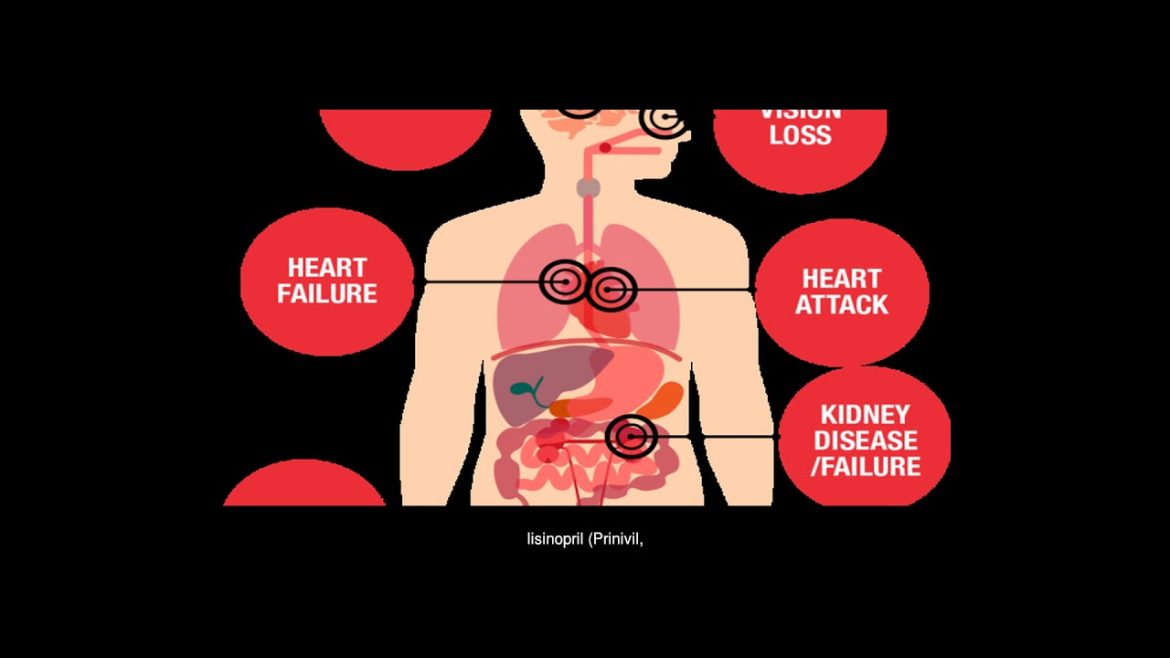Hypertension, commonly known as high blood pressure, is a widespread health condition affecting millions globally. It is categorized into stages based on the severity of the blood pressure readings. Stage 2 hypertension represents a more advanced stage of the condition, where blood pressure levels are consistently elevated and pose significant risks to cardiovascular health. Understanding the symptoms associated with stage 2 hypertension is crucial for early detection, management, and prevention of complications.
Understanding Stage 2 Hypertension
Stage 2 hypertension is defined by systolic blood pressure (the top number) consistently at 140 mm Hg or higher, or diastolic blood pressure (the bottom number) consistently at 90 mm Hg or higher. This stage indicates that blood pressure levels are well above the normal range and require prompt attention to reduce the risk of serious health consequences, such as heart attack, stroke, and kidney disease.
SEE ALSO: What Is Pulmonary Hypertension in Infants And Its Causes
5 Typical Symptoms of Stage 2 Hypertension
1. Persistent Headaches
One of the hallmark symptoms of stage 2 hypertension is persistent headaches. These headaches typically occur at the back of the head and are often described as throbbing or pulsating. The elevated blood pressure puts strain on blood vessels in the brain, leading to headaches that may worsen in severity over time. Individuals with stage 2 hypertension may experience headaches upon waking in the morning or during times of stress.
2. Vision Changes
Changes in vision can also occur as a result of stage 2 hypertension. Elevated blood pressure can damage blood vessels in the eyes, leading to symptoms such as blurred vision, double vision, or even sudden loss of vision in severe cases. These visual disturbances are often transient but should be evaluated promptly by a healthcare professional to assess the extent of damage and initiate appropriate treatment.
3. Fatigue and Difficulty Sleeping
Stage 2 hypertension can contribute to feelings of fatigue and difficulty sleeping. The increased workload on the heart and blood vessels can lead to poor circulation and oxygen delivery to tissues, resulting in fatigue even after adequate rest. Sleep disturbances, such as insomnia or restless sleep, may also be experienced due to the physiological effects of elevated blood pressure on the body’s regulatory systems.
4. Chest Pain and Shortness of Breath
Chest pain (angina) and shortness of breath can manifest in individuals with stage 2 hypertension, especially during physical exertion or periods of stress. Elevated blood pressure places strain on the heart muscles, reducing their efficiency in pumping blood throughout the body. This can lead to symptoms of angina, characterized by chest discomfort, pressure, or tightness, as well as breathlessness due to reduced oxygen supply to tissues.
5. Dizziness and Lightheadedness
Dizziness and lightheadedness are common symptoms of stage 2 hypertension, particularly when standing up quickly or after prolonged periods of sitting or lying down. Elevated blood pressure can disrupt the body’s ability to regulate blood flow to the brain, resulting in transient episodes of dizziness or feeling faint. These symptoms may indicate inadequate blood supply to the brain and should be evaluated promptly by a healthcare provider.
Diagnosis And Management
Diagnosing stage 2 hypertension involves measuring blood pressure readings consistently over time to confirm elevated levels. Diagnostic tests may include ambulatory blood pressure monitoring (ABPM) or home blood pressure monitoring to assess blood pressure throughout the day and night. Once diagnosed, management strategies focus on reducing blood pressure through lifestyle modifications and, if necessary, medication therapy.
Lifestyle Modifications
Lifestyle modifications play a crucial role in managing stage 2 hypertension and reducing cardiovascular risks. These include:
Healthy Diet: Adopting a diet rich in fruits, vegetables, whole grains, and low-fat dairy products while limiting sodium, saturated fats, and cholesterol.
Regular Physical Activity: Engaging in aerobic exercise such as brisk walking, swimming, or cycling for at least 150 minutes per week, supplemented with muscle-strengthening activities on two or more days per week.
Weight Management: Achieving and maintaining a healthy weight through a balanced diet and regular exercise.
Stress Management: Practicing relaxation techniques such as deep breathing, meditation, or yoga to reduce stress levels.
Medication Therapy
In some cases, lifestyle modifications alone may not be sufficient to lower blood pressure to target levels. Healthcare providers may prescribe medications, such as diuretics, beta-blockers, ACE inhibitors, or calcium channel blockers, to help manage hypertension effectively. These medications work by reducing blood volume, relaxing blood vessels, or decreasing the heart’s pumping strength.
Monitoring and Follow-Up
Regular monitoring of blood pressurevels is essential for individuals with stage 2 hypertension to track the effectiveness of treatment and make necessary adjustments.
Healthcare providers may recommend periodic blood tests, electrocardiograms (ECGs), or other diagnostic tests to assess cardiovascular health and monitor for potential complications.
Conclusion
Recognizing the symptoms of stage 2 hypertension is crucial for early intervention and management to reduce the risk of cardiovascular complications. Persistent headaches, vision changes, fatigue, chest pain, dizziness, and lightheadedness are key indicators that should prompt individuals to seek medical evaluation. By adopting healthy lifestyle habits, adhering to prescribed treatment plans, and working closely with healthcare providers, individuals can effectively manage stage 2 hypertension and improve long-term cardiovascular outcomes.


